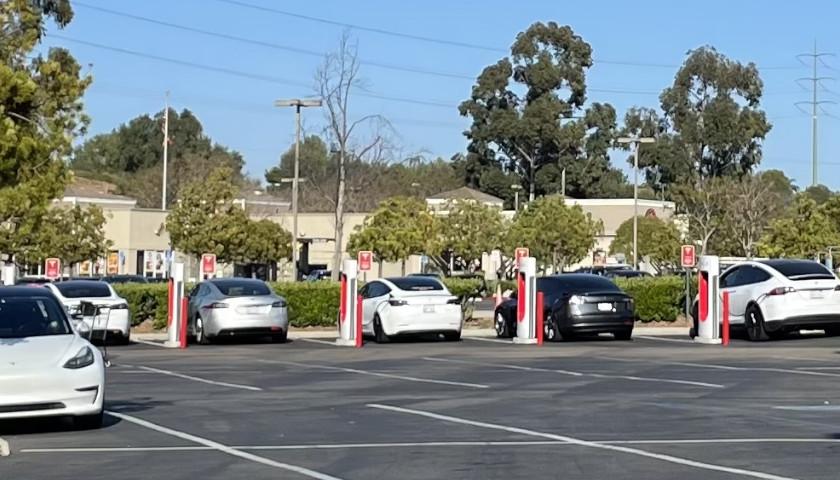by Scott McClallen
Gov. Gretchen Whitmer’s proposed $79 billion budget for fiscal year 2024 aims to require taxpayers subsidize electric vehicles and chargers with $318 million.
Whitmer’s mobility budget includes $160 million for capital investments in rail, bus, and marine transit service expansions, $65 million for EV charging stations, and $48 million over two years for an EV sales and use tax exemption.
Jason Hayes, director of environmental policy at the Mackinac Center for Public Policy, said Whitmer’s EV proposal “skews tax policy” in favor of EV producers and the small number of people who can afford them.
“Effective tax policy avoids enriching select individuals and sectors at the expense of the general public,” Hayes said in a statement. “Instead it spreads the costs and/or benefits of tax policy across the broadest possible segment of the population. But the Governor’s proposed budget fails that very basic test in that it skews tax policy, by choosing lavishing hundreds of millions in financial privileges onto EV producers and to the small and relatively well-to-do segment of the public that can afford to purchase them. This budget spends $318 million on preferential tax cuts on EV purchases, financial favors to those installing EV chargers, and more government spending on a hurried ‘transition’ of public transit and school vehicle fleets away from reliable and proven technologies to electric options.”
The proposal would cut the state sales tax on the first $40,000 of an EV, which could save about $2,400 in taxes, Whitmer said on Wednesday.
“We’ve got the number one economy for clean energy job growth in the country,” Whitmer said when presenting her budget. “That’s a point of pride. But we also know that we’ve got to level the financial barrier so more people can participate in this transition. You save money in the long run, but sometimes the price upfront can be prohibitive.”
Only 25,181 EVs are registered statewide compared to 6.5 million vehicles with internal combustion engines.
The high cost of EVs is a major barrier to adoption, as well as a limited charging network and a driving range that drastically drops in extremely cold weather.
According to Kelley Blue Book, the average price of an electric car in September 2022 was $65,291. Meanwhile, the average price for a gas-powered vehicle was $48,100. Moreover, many used gas-powered cars cost between $5,000 and $15,000.
In 2016, 78% of federal EV tax credits flowed to taxpayers with incomes over $100,000.
Other proposed mobility spending includes $150 million to help school districts buy 500 electric school buses, $45 million for local governments and businesses to transition their fleets to EVs, and $10 million to transition the state’s fleet to EVs.
Whitmer said that electric school buses would reduce energy costs for schools, lower asthma rates and hearing loss, and reduce road noise.
The spending is piled onto $110 million of planned EV infrastructure spending to prepare for 2 million EVs on the road by 2030, according to state projections.
– – –
Scott McClallen is a staff writer covering Michigan and Minnesota for The Center Square. A graduate of Hillsdale College, his work has appeared on Forbes.com and FEE.org. Previously, he worked as a financial analyst at Pepsi.
Photo “Electric Vehicles Charging” by Megan Makepeace. CC BY 4.0.





